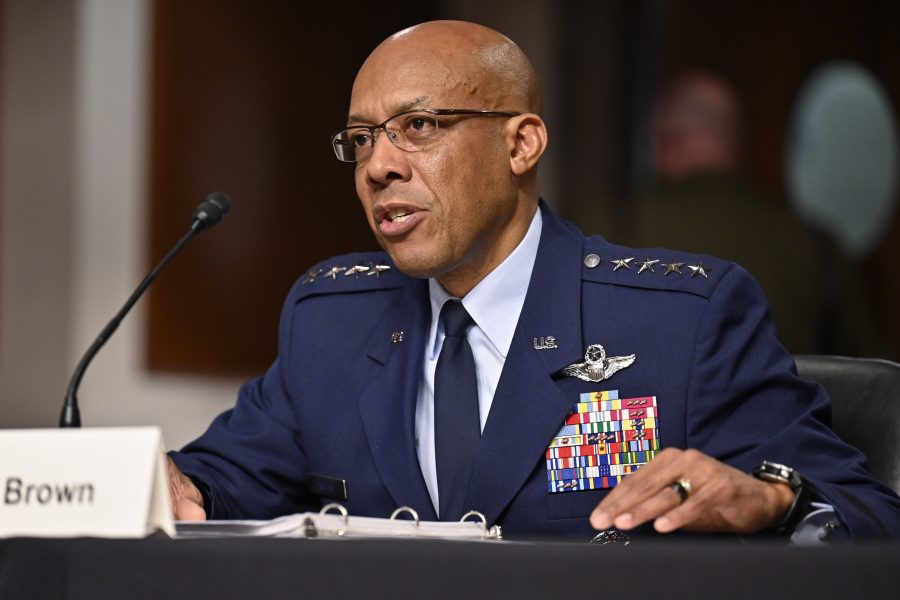The long-awaited hearing to confirm the next Chairman of the Joint Chiefs of Staff will begin on July 11, when Air Force Chief of Staff Gen. Charles Q. Brown, Jr. is set to testify before the Senate Armed Services Committee.
That morning, Brown will face the dais of 25 Senators, four years after the current Chairman of the Joint Chiefs of Staff Army Gen. Mark A. Milley came before the SASC. Milley passed his roughly two-hour test, had his nomination approved by voice vote in committee, and was swiftly confirmed to the role in an 89-1 vote on the Senate floor just two weeks after his hearing.
If confirmed by the Senate, Brown would be the first Airman in 18 years to serve as the commander-in-chief’s top military adviser. Brown said he had a game plan for how to handle the scrutiny: be himself.
“I am who I am,” Brown said June 7 during an event at AFA’s Mitchell Institute for Aerospace Studies. “I think about joint operations. I think about combat capability—how we will continue to push ourselves to ensure we have the capabilities to provide the nation what it asks us to do.”
While Brown’s nomination has broad support in Congress from Democrats and Republicans, his confirmation will likely not be as straightforward.
Though Democrats narrowly control the Senate and have a 13-12 majority of the Democratic caucus in the SASC, Sen. Tommy Tuberville (R-Ala.) has placed a hold on all general and flag officer nominations to protest the Department of Defense’s reproductive health policies, which pays for service members to travel to seek an abortion or other care, such as in-vitro fertilization.
Tuberville’s office has said that the hold will apply to Brown, and it is holding up the confirmation of other officers nominated to be members of the Joint Chiefs.
“Uncertainty about incoming or outgoing commanders and senior leaders can make it difficult to plan for or advance mission requirements,” Pentagon Press Secretary Air Force Brig. Gen. Patrick S. Ryder said July 6.
Still, the Senate can bring Brown up for a roll-call vote, and Milley’s term does not expire until the end of September.
Brown commanded air operations over the Middle East and led Pacific Air Forces before becoming Chief. He also commanded the Air Force Weapons School and is an F-16 pilot with 3,000 flying hours, including 130 combat hours.
Brown is known as a thoughtful leader. As Chief, Brown’s signature “Accelerate Change or Lose” mantra, primarily aimed at modernizing to meet China’s growing military, is broadly in line with the priorities of the White House, the Pentagon, and Congress.
Brown faced no dissenting votes after being nominated by President Donald Trump to lead the Air Force in 2020 and was confirmed 98-0 in a roll call vote.
But Brown’s nomination process may run into obstacles this time, at least in the short term, due to policies that have nothing to do with Brown as Tuberville sits on the Senate Armed Services Committee.
“I urge the Senate to once again confirm General Brown with the same overwhelming bipartisan support for his new role as Chairman of the Joint Chiefs of Staff,” Biden said on May 25 when unveiling his pick.


